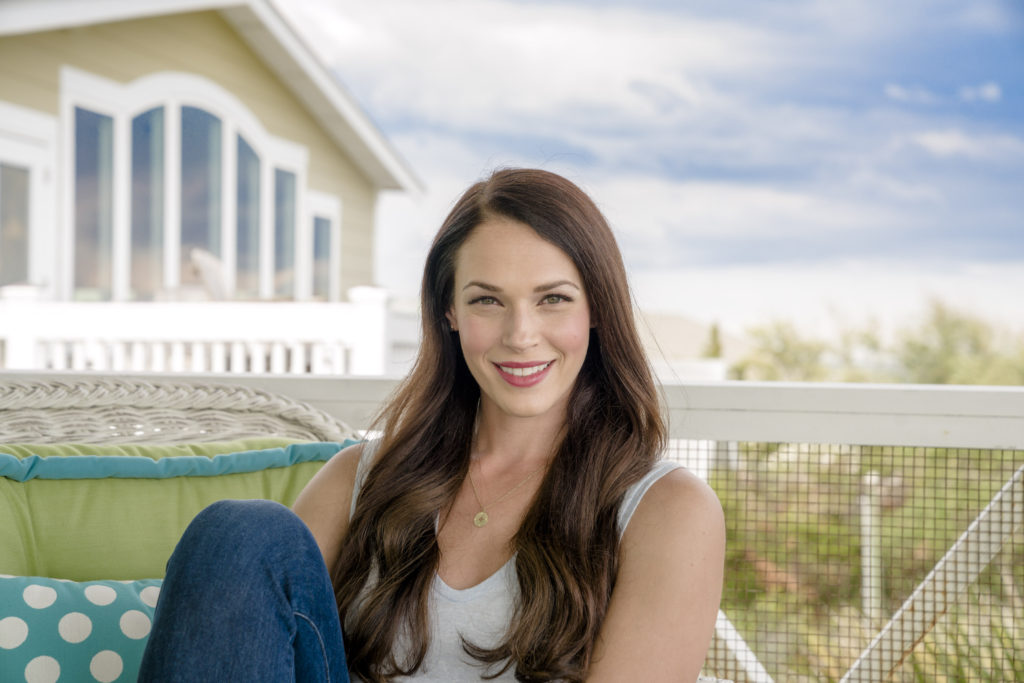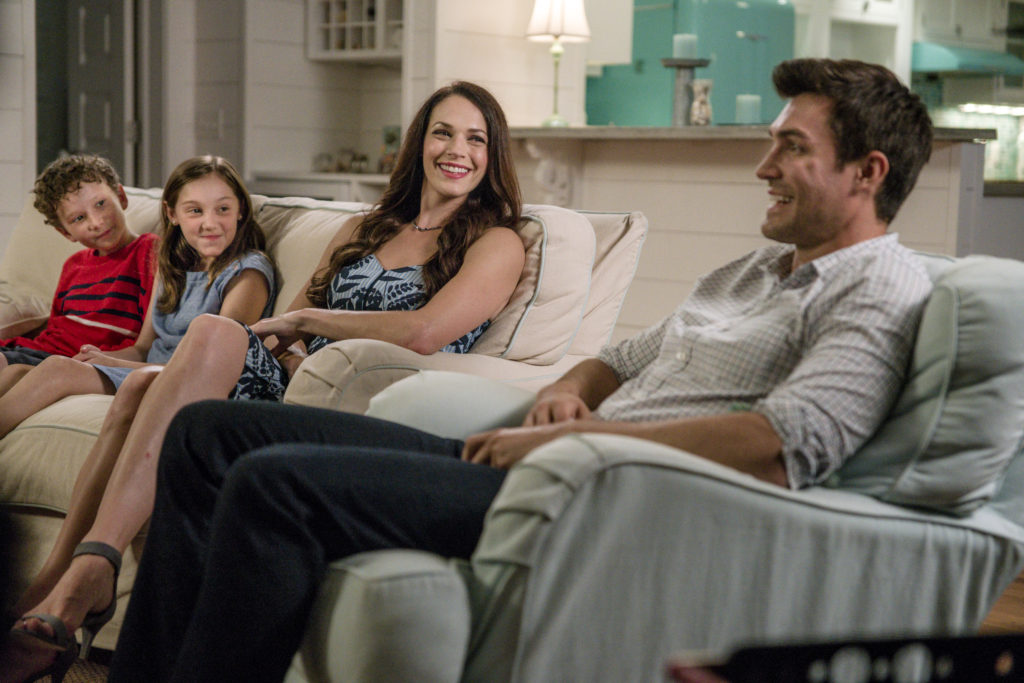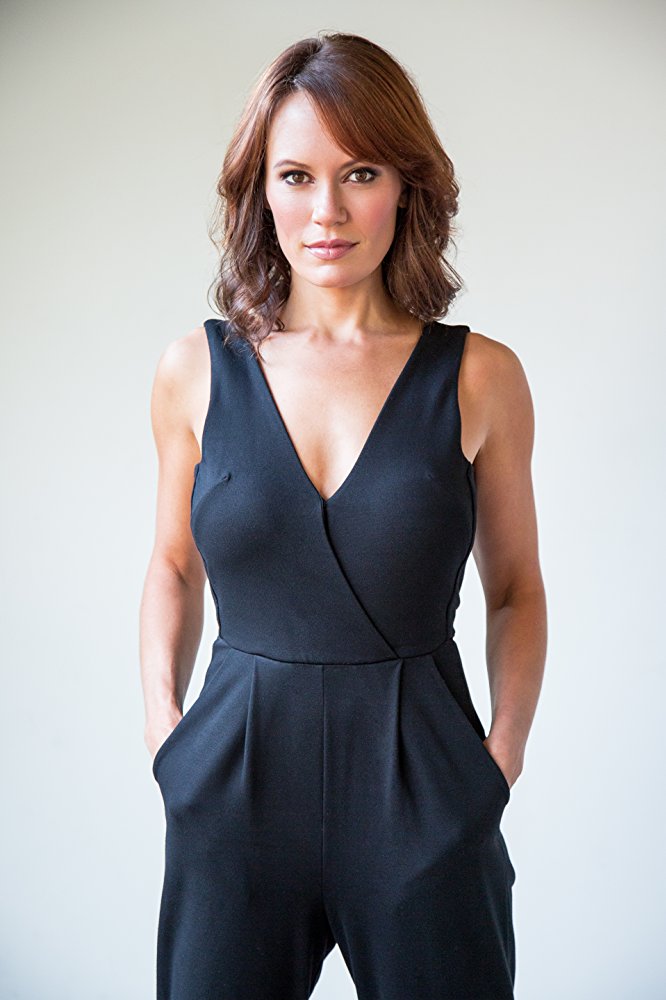
Most shows have a difficult time maintaining an audience for more than a few years, but with CW mainstay “Supernatural” currently in its 13th season and showing no signs of losing steam, it’s difficult to imagine a time where the Winchester brothers are not killing monsters and, as has been the case over the course of the series, being killed by monsters.
The strength of “Supernatural” goes beyond its stars Jensen Ackles and Jared Padalecki however. Yes, the series could not exist without them, but the dynamic demon-hunting duo would not be as engaging to an audience without a supporting cast of characters who not only define the in-series lore, but help reshape it even after more than a decade on the air.
Actress Emily Swallow did just that when she joined the series as Amara, God’s sister, in season 11. Her connection with Ackles’ character Dean both riled and excited fans and her very presence sent ripples throughout the fictional universe and lead to one of the biggest reveals in the history of the show, that the beloved reoccurring character Chuck (played by Rob Benedict) was in fact God, which was long hinted at by the writers and presumed by fans.
We recently sat down with Swallow to discuss her take on the “Supernatural” fan base, why she loves attending the conventions now that her storyline has (temporarily) buttoned up, and what her favorite stage acting experience has been to date.
TrunkSpace: You entered the “Supernatural” universe in a big way via a character who ends up becoming a part of the foundational lore of the series. How has the fandom, one that is extremely passionate about its characters and ongoing storyline, welcomed you into the SPN Family?
Swallow: I have never experienced a fandom that is so passionately protective of a show and its characters. Because of that, I was understandably greeted with a degree of skepticism from the fans, especially because I had googly eyes for Dean AND was causing a bit mayhem wherever I went. I remember Misha (Collins) telling me I should be prepared for the fans to hate me after the episode when Dean and Amara kissed! I was excited about Amara’s mission, though, and I hoped that, as her story unfolded, the fans would realize she was deeply hurt and misunderstood and that THAT was why she did the things she did. I found this to be true; because Amara ultimately needed what the other characters who are central to the show needed – love and family – the fans rejoiced for her when she and Chuck made up.
TrunkSpace: One of the great things about the series is that it’s a bit like a secret club. If you watch the show, you’re in. If you don’t, you may not even know that the show is still on the air. But the truly amazing part of that is that the cast seems to be a willing participant in that club. There’s a lot less separation between those who are on the show and those who are in the fandom than there is with other shows. Do you think that has helped keep the audience vested and engaged for what is now 13 seasons?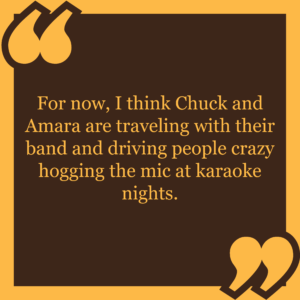
Swallow: Absolutely, but it goes both ways – everyone involved with the show is keenly aware that we owe a LOT to a fan base; without their active involvement, we might have run out of steam several seasons ago. It’s a very exciting thing to feel the energy from such an engaged audience. I have felt a similar passion from theater audiences, but this is new for me in television, and I LOVE it. It keeps us energized while we’re exploring the storylines and makes us even more excited to see what comes next.
TrunkSpace: Another really unique aspect of the show is that, even when cast members are absent from the series, they’re still engaged. Everyone we have ever spoken to who has appeared on the show has had the same experience… there’s nothing quite like it in terms of on-set atmosphere. Has that been your experience as well and what is the source of that universal feeling?
Swallow: It’s true! To be honest, I felt more involved with the show and the fans once I’d already shot my season. This was partly because I just didn’t get to work with many other actors until the end of my season (Amara led a pretty dang solitary existence), and partly because of the lag time between when I shot and when episodes aired. My involvement in conventions didn’t really start until I had finished Amara’s storyline. The conventions continue to surprise me. Some of my favorite actors to collaborate with at conventions didn’t even appear in my season of SPN, but I get to sing with them, play with them, improvise with them and match wits in a way that is SO much fun! The conventions also give me a chance to be myself with the fans – Amara is quite far from me in terms of my natural disposition and temperament (thank goodness), so it’s great that I can be super goofy and dorky. I think this all happens simply because there are a lot of actors who have been on the show who are generous, playful and silly and love the interaction that the conventions provide.
TrunkSpace: From a performance standpoint, what did Amara offer you that you hadn’t had a chance to experience before? Was there something about her personality, how she viewed the world, that made her interesting for you on a level that may be different from what fans saw in her?
Swallow: I LOVED what the writers gave me for Amara! To me, the most interesting exploration had to do with finding her very human vulnerability, and trying to connect to that place in her that isn’t immune to pain and fear and hope and dreams…while it was thrilling to embody such an epic character, in order to believe in my acting choices I had to tap into the humanity that the show’s writers are so gifted at bestowing on the characters. Early on, I decided that I would probably serve her much better if I focused on stillness and a steady focus rather than trying to SHOW her power. That made sense to me too because, since she’d been locked up for all of time, she had a LOT of information to try and take in from the world around her, so I let her be always watching and waiting until she was stirred to react to something. It makes me relieved when I hear fans talk about how conflicted they were about hating her. Even though she reacted in ways that were destructive, they often say they felt so sorry for her because she was alone and misunderstood. I hope that’s true for most viewers. To me, “evil” characters are most interesting because of the vulnerability and pain they are trying to cover up, and I think we can all relate to feeling lonely, confused, lost, not heard… I loved that about Amara.
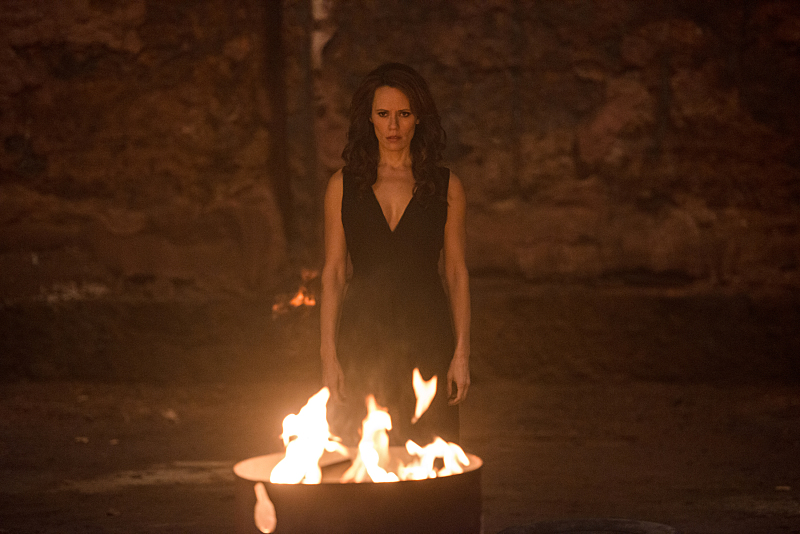
TrunkSpace: You had some really great, meaty scenes with Dean (played by Jensen Ackles) and Lucifer (played, well, in season 11 it is a bit confusing) that went beyond dialogue and delivery. The facial expressions… longing and bitterness turned from emotions into physical representations… it was some really powerful acting. Did you get to go places with Amara that you never expected to when you signed up to play her?
Swallow: Absolutely! With Jensen, the scenes came rather organically; we knew from the beginning that they had a bond that neither of them could really explain or understand, and so we just committed to that and didn’t try to logic it out. There’s something freeing about that kind of primal connection and it meant that, even if we weren’t entirely clear on where their relationship was headed from episode to episode, that internal struggle was there. Plus, Jensen is such an honest, present actor that it’s impossible NOT to want to connect with him! As for my Lucifer scenes, I never got to work with Mark (Pellegrino), but rather dealt with Castiel-as-Lucifer. That was fun because Misha was having so much fun channeling Mark! With him, it was interesting because I felt like Amara’s treatment of Lucifer was less about Lucifer himself and more about trying to get God/Chuck’s attention, so it was almost as if I was trying to gauge what HIS reaction would be when I was talking to Lucifer or (more often) torturing him. I felt wonderfully supported in everything I tried for Amara, and that led to me feeling safe to go from joy to rage to hope to fear in a heartbeat. I have to thank all the actors I worked with for that!
TrunkSpace: It seems nobody is ever truly gone when it comes to the “Supernatural” universe. Amara is currently on a sabbatical with her younger brother God. As the Winchesters continue to get themselves into trouble, has there been discussion about if and/or when she will return?
Swallow: I sure hope so! For now, I think Chuck and Amara are traveling with their band and driving people crazy hogging the mic at karaoke nights. (Laughter)
TrunkSpace: You recently worked on the animated series “Castlevania.” Do you take a different approach to voice acting than you do your on-screen work? Is the character discovery/journey the same?
Swallow: The beginning of the process is the same; I still look first at the character’s wants, needs, hopes and fears and make decisions based on her circumstances in relation to that. But my experience recording VO has been in a sound booth with few or no other actors, so it is indeed very different! Much more of that is left up to the director and editors.
TrunkSpace: “Castlevania” is a property that has had a lot of people invested in it from the time that they were kids. Does that put extra pressure on those involved in a project when it automatically has a specific set of expectations from an existing fan base?
Swallow: Not really, because I know that, if I try to predict what people want, I’ll probably do horrible work that doesn’t really try anything bold! I know it’s impossible to please everyone, so I just try to stay true to my gut and what I connect to in any project, and then make sure I do a thorough exploration with the director and other actors. At the end of the day, I think people who truly love a project or certain pre-existing characters will appreciate that honest, heartfelt commitment more than any attempts at imitating a style or another performance of a role.
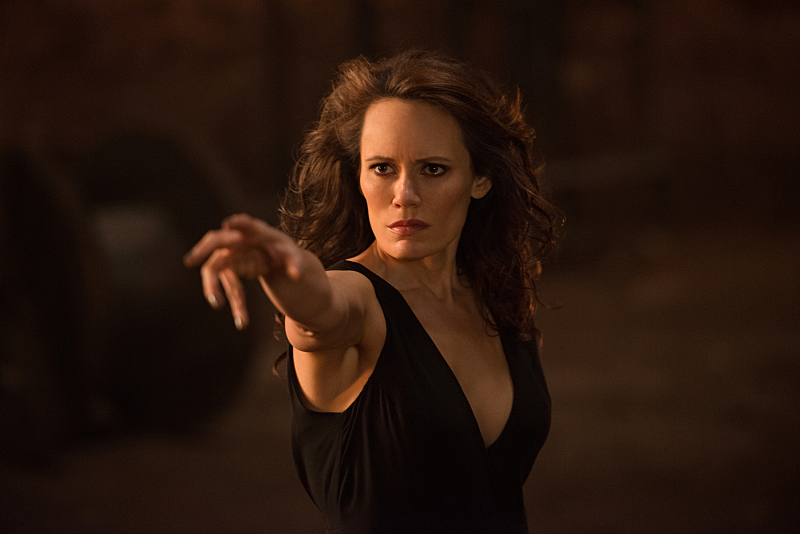
TrunkSpace: People say that television is the editor’s medium and that film is the director’s medium. In your opinion, is the stage where the most amount of emphasis is placed on performance?
Swallow: Absolutely. When I’m on stage, I have much more control over the character’s journey from beginning to end. To an extent, I can make the audience look wherever I want and I get to find the performance for THAT show in THAT moment, and I love the changes that can occur night to night because of that. When we walk onstage to do a performance, we are often aware of world events that may be on the audience’s mind that day, or the experience they had walking into the theatre, and that collective consciousness means, to some extent, we’re on a similar wavelength. We are all experiencing space and time together for a couple of hours. With anything recorded, that experience is entirely different; not only is the audience far removed in time from when the work was performed, but the editor is controlling the timing, the actors they’re looking at at any given moment, where commercial interruptions occur…as an actor, I have to operate with faith that what I’m exploring in the character will come through even if I don’t know how a scene will ultimately be presented.
TrunkSpace: What is the most memorable stage/house you’ve ever performed on/in and why has it stuck with you?
Swallow: My favorite show was “Nice Fish,” which I performed a few years ago at the Guthrie Theatre in Minneapolis. It is a play that Mark Rylance co-authored, co-directed and co-starred in. It was a HUGE joy to work on because it was a brand new play and we discovered some of the scenes through improvisation in rehearsals. We even had parts of the show that weren’t ever written down – we discovered them anew at every performance! Mark is such a generous and playful and trusting performer, and he gave me courage to risk failure and try things that frightened me. Plus, I got to play a Norse Goddess living in a sauna ice house on a frozen lake in the midwest! That whole rehearsal and performance process challenged me in such fun and exciting ways, and I loved my fellow actors. We had so much trust and love built up that we were able to make really thrilling discoveries in front of an audience.


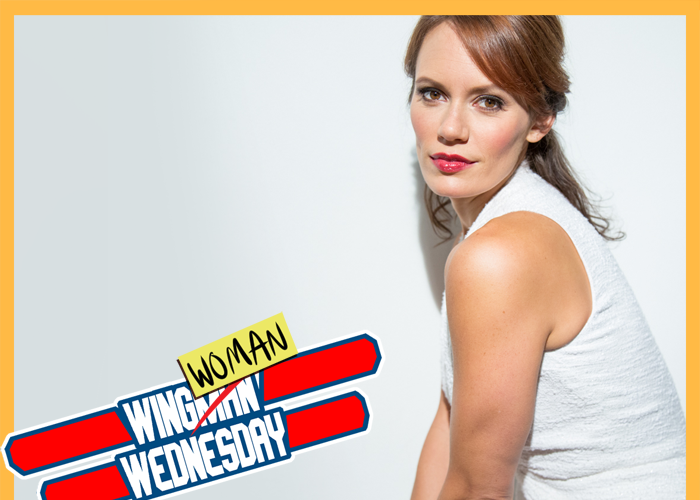
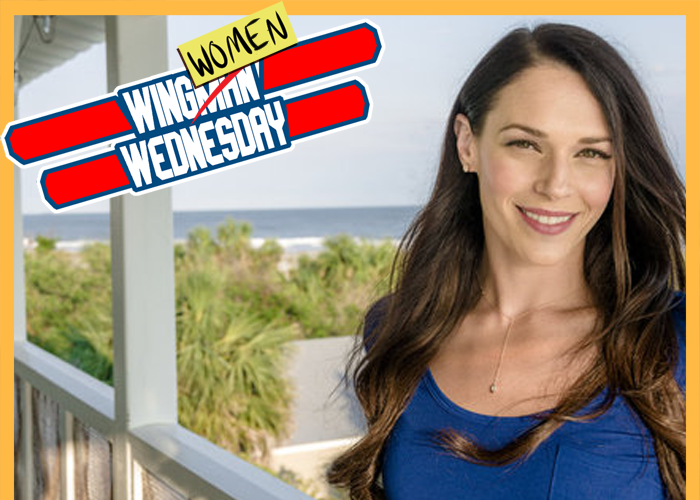

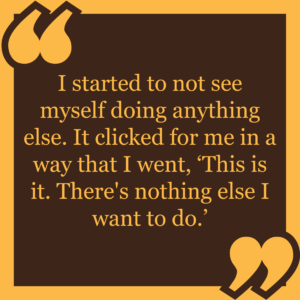 That all gets kind of cracked open. It opens her eyes to a new avenue. There’s something really lovely about that journey, and I think everybody can kind of relate to it.
That all gets kind of cracked open. It opens her eyes to a new avenue. There’s something really lovely about that journey, and I think everybody can kind of relate to it. 